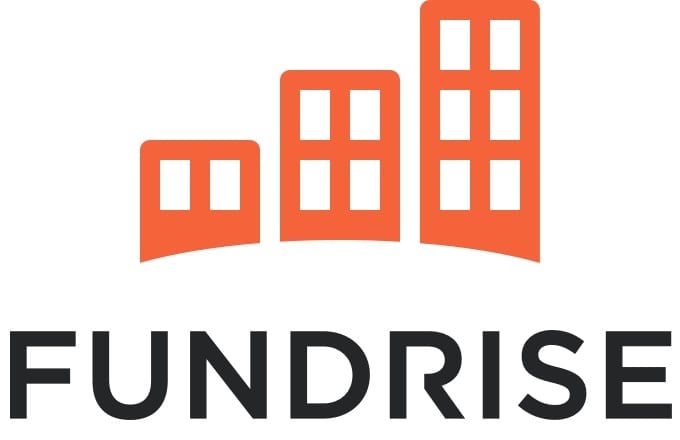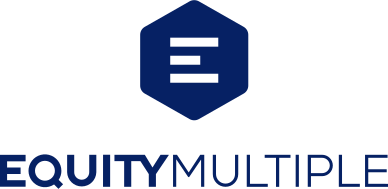3 Best Real Estate Crowdfunding Investment Platforms
+ 1 more
Many or all of the products on this page are from partners who compensate us when you click to or take an action on their website, but this does not influence our evaluations or ratings. Our opinions are our own.
The investing information provided on this page is for educational purposes only. NerdWallet, Inc. does not offer advisory or brokerage services, nor does it recommend or advise investors to buy or sell particular stocks, securities or other investments.
Real estate crowdfunding has transformed the real estate investing landscape. Once reserved for only the most affluent investors, many real estate platforms have significantly lowered the barrier to entry when it comes to investing in real estate.
The low account minimums, reasonable fee structures and cleanly laid out investment details on these platforms make it easier for investors to include real estate in a well-diversified portfolio.
Below, our top picks for the best real estate crowdfunding platforms based on several factors, including account minimums, customer support, redemption options, fees and more.
Best Real Estate Crowdfunding Investment Platforms
| Broker | NerdWallet rating | Fees | Account minimum | Promotion | Learn more |
|---|---|---|---|---|---|
5.0/5 Reviewed in: Dec. 2024Period considered: Nov. - Dec. 2024 | 1% other fees may apply | $10 | Advisory fee waiver for 12 months | Learn moreon partner's site on Fundrise's website AD Paid non-client promotion | |
4.2/5 | 0.5% -
1.5% other fees apply | $5,000 | Earn a special 1% return boost on your first investment | Learn moreon partner's site on EquityMultiple's website | |
4.9/5 | 1% to 1.25% management fees; other fees may apply | $5,000 | None no promotion available at this time |
Our pick for
Nonaccredited Investors
- Learn moreon partner's siteon Fundrise's websiteNerdWallet rating5.0/5Reviewed in: Dec. 2024Period considered: Nov. - Dec. 2024Learn moreon partner's siteon Fundrise's websiteADPaid non-client promotion
Fees
1%
other fees may apply
Account minimum
$10
Promotion
Advisory fee waiver
for 12 months
Our Take
Pros$10 minimum investment.
Open to nonaccredited investors.
Easy-to-use website.
IRA accounts available.
ConsHighly illiquid investments.
Fees can be difficult to understand.
Why We Like ItFundrise is an online real estate company that lets average investors buy into private commercial and residential properties by pooling their assets through an investment platform. The company offers real estate funds that don't trade on a public exchange.
- NerdWallet rating4.9/5
Fees
1% to 1.25%
management fees; other fees may apply
Account minimum
$5,000
Promotion
None
no promotion available at this time
Our Take
ProsREIT products are open to nonaccredited investors.
REIT buyback program can add liquidity.
Cons$5,000 investment minimum.
Complex fee structures that vary by investment.
Why We Like ItRealtyMogul offers investments for accredited and nonaccredited investors alike, but the complexity of its offerings — particularly when it comes to fees and liquidity — may turn off those who dislike reading fine print.
Our pick for
Accredited Investors
- Learn moreon partner's siteon EquityMultiple's websiteNerdWallet rating4.2/5Learn moreon partner's siteon EquityMultiple's website
Fees
0.5% - 1.5%
other fees apply
Account minimum
$5,000
Promotion
Earn a special 1% return boost
on your first investment
Our Take
ProsAccess to commercial real estate investments.
Easy-to-use website.
Liquidity options for certain investments.
ConsOnly open to accredited investors.
Complex fee structures that vary by investment.
Why We Like ItEquityMultiple blends crowdfunding with a more traditional real estate investing approach that can lead to high returns. Unfortunately, it’s only available to accredited investors.
What's the difference between these platforms and REITs?
Real estate investments trusts, or REITs, are companies that own real estate, such as hotels, malls, shopping centers or rental properties. Publicly traded REITs can be purchased through a brokerage account just like individual stocks or mutual funds.
Real estate crowdfunding platforms, on the other hand, pool funds together to let average investors participate in the real estate market through private REITs — which aren’t available through traditional brokerages — as well as private market real estate investments, like individual properties. These could potentially provide higher returns than the REITs available through traditional brokerages, but they may also carry higher risk. Some of the companies on this list also offer other types of investments, such as venture capital, private equity or collectables like art.
Last updated on March 1, 2026
Methodology
How do we review real estate platforms?
All NerdWallet reviews and lists of the best investing products are created by our editorial team of full-time writers and editors, independent of any business relationships. In this case, our comprehensive review process evaluates and ranks companies that allow U.S. customers to invest in real estate, primarily through non-traded REITs or private equity. Our aim is to provide an independent, balanced assessment of providers to help arm you with information to make sound, informed judgements on which ones will best meet your needs. We adhere to strict guidelines for editorial integrity.
We collect data directly from providers through detailed questionnaires, and conduct first-hand testing and observation through provider demonstrations. The questionnaire answers, combined with demonstrations, interviews of personnel at the providers and our specialists’ hands-on research, fuel our proprietary assessment process that scores each provider’s performance across eight factors. The final output produces star ratings from poor (one star) to excellent (five stars).
For more details about the categories considered when rating brokers and our process, read our full methodology.
NerdWallet's Best Real Estate Crowdfunding Investment Platforms
- Fundrise: Best for Nonaccredited Investors
- RealtyMogul: Best for Nonaccredited Investors
- EquityMultiple: Best for Accredited Investors
Frequently asked questions
What is real estate crowdfunding?
Real estate crowdfunding involves pooling investors' money to fund a real estate project or investment. Often this is done by investing in a private REIT, but some of these platforms also give investors access to private real estate development projects.
Is real estate crowdfunding safe?
While buy-in can be relatively low and the risks are in some cases similar to investing in individual stocks, it's important to note that real estate crowdfunding platforms are new to the investment sphere. How these nascent companies hold up during and after severe market downturns is yet to be seen. Keep in mind that no investment is without risk, and investments that aim for higher returns often carry more risk.
Many of the real estate investments offered in these crowdfunding platforms can be illiquid, or take longer to convert into cash, and are likely better suited to investors who can afford to be patient. If you're looking for an investment that you can sell out of in a pinch to generate cash, traditional investment accounts invested in mutual funds, ETFs, stocks and bonds may be a better fit for you.
How much do I need to start investing in real estate?
Through some online real estate investment platforms, investors can start for as little as $10, though higher minimums are much more common. Some platforms also require investors be accredited, which sets income or net worth minimums.
What is an accredited investor?
Accredited investors are allowed to participate in investments not registered with the U.S. Securities and Exchange Commission. The designation is meant to ensure only those investors with the appropriate experience, funds and understanding of risk can take part in certain investments. Accredited investors must have income of more than $200,000 in each of the last two years (or $300,000 together with a spouse), or have a net worth of more than $1 million, excluding a primary residence.
You may also be an accredited investor if you're considered a "knowledgeable employee" of a private fund or a financial professional who holds certain licenses.
Why include REITs in my portfolio?
Some of the biggest advantages of REITs include consistently high dividends (making them a popular choice among investors looking for fixed income), historically high returns and often less volatility than other asset classes. However, publicly traded REITs that can be purchased through a traditional brokerage account are generally considered safer than private REITs offered by real estate crowdfunding platforms.
What’s the difference between public and private REITs?
Public REITs are traded on an exchange just like stocks and exchange-traded funds, and are available through most brokerage accounts. Private REITs aren’t listed on public exchanges, nor are they typically registered with the SEC.
With fewer disclosure requirements, it can be very difficult to evaluate the performance of private REITs. Public non-traded REITs — a third category — are registered with the SEC, but aren’t available on an exchange. Learn more about the risks associated with private and public non-traded REITs.




